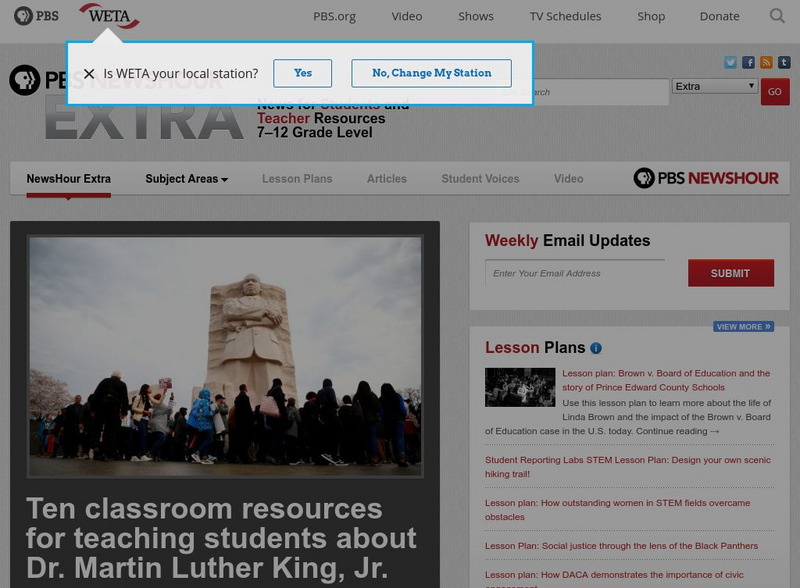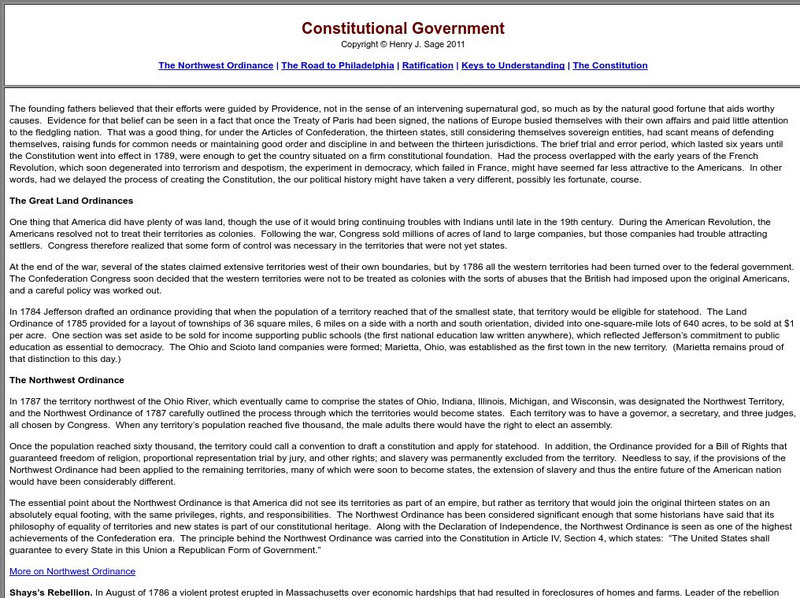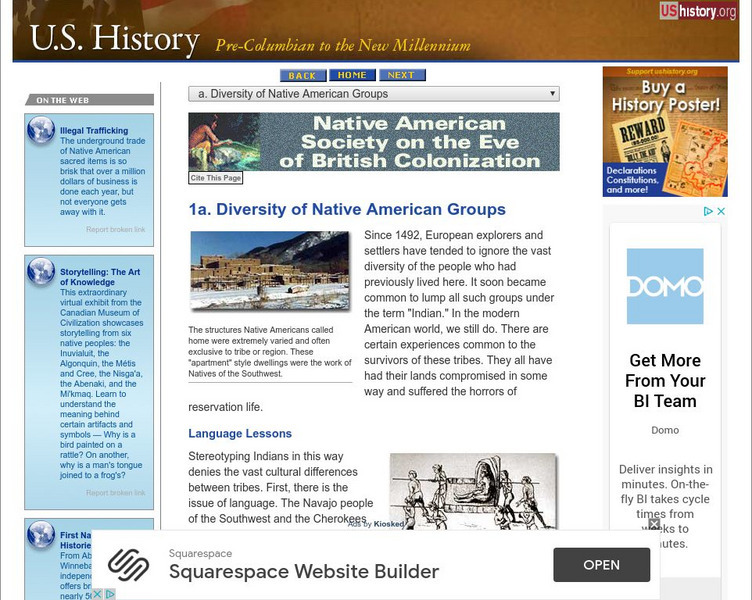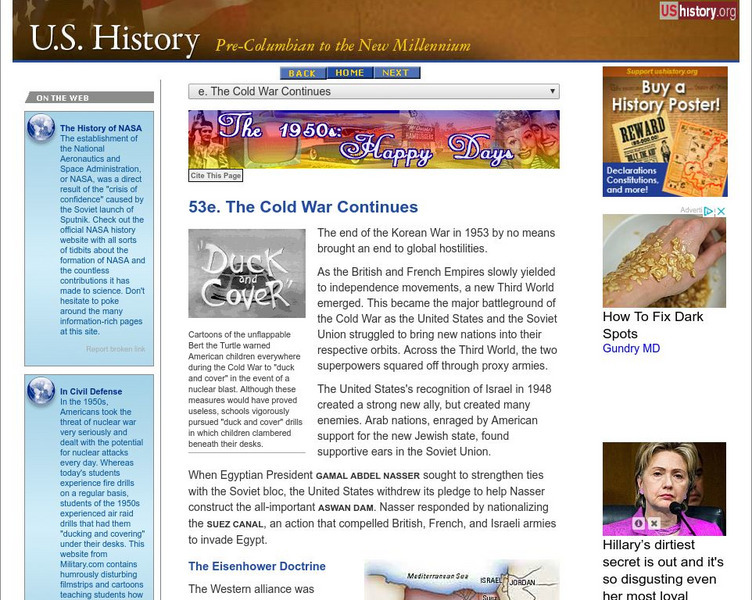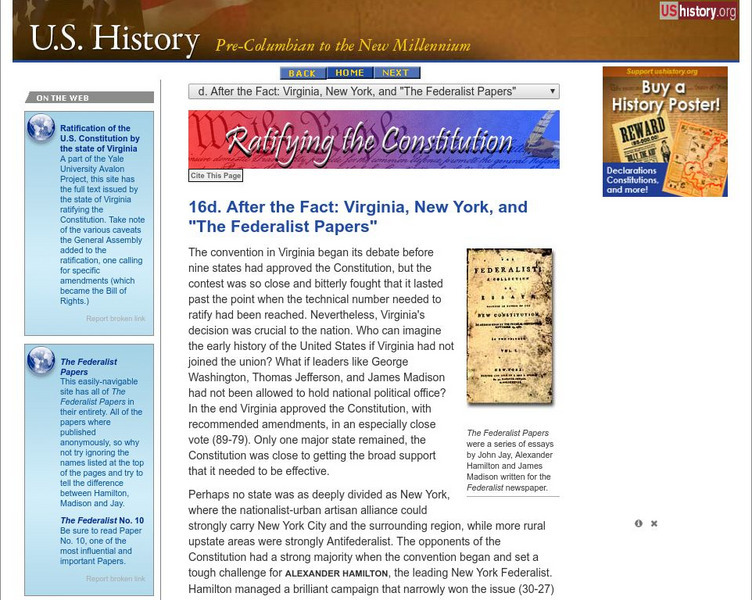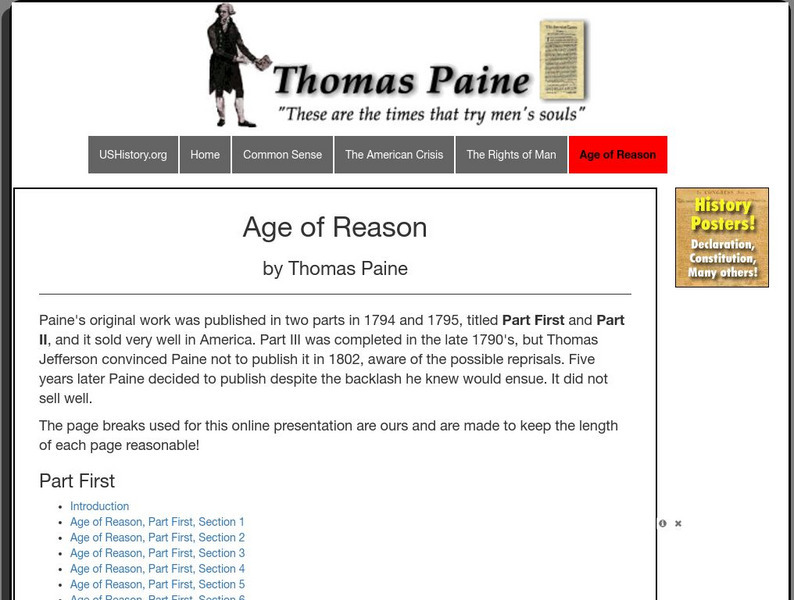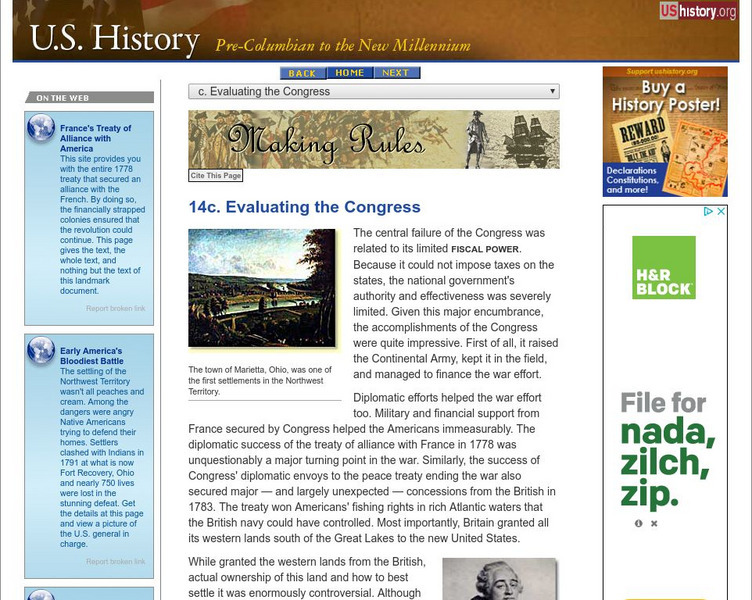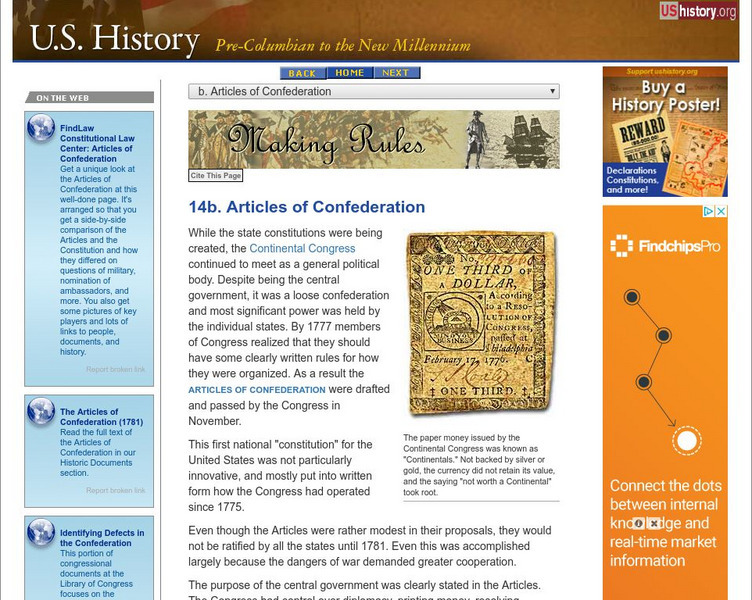Hi, what do you want to do?
Smithsonian Institution
National Museum of American History: Preparing for the Oath: u.s. History and Civics for Citizenship
This site from the National Museum of American History, part of the Smithsonian Institution, is a great site for citizens and those learning to become citizens alike. Review the fifteen themes that deal with U.S. history and civics,...
C3 Teachers
C3 Teachers: u.s. History Module: Did Founders Want Government to Work? [Pdf]
A comprehensive learning module on the system of government established by the founders that includes three supporting questions accompanied by formative tasks and primary source materials, followed by a summative performance task....
PBS
Pbs Learning Media: Writing in u.s. History: The Bill of Rights
Explore why the Bill of Rights was added to the Constitution and its enduring impact on defining our rights. In this interactive lesson from WGBH, students develop a written argument in response to the question "How does the Bill of...
PBS
Pbs News Hour Extra for Students and Teachers
The NewsHour with Jim Lehrer offers specialized news resources for students and teachers. Content includes background information for the top stories of the week, full multimedia packages (video, audio, graphics, and text) which explore...
Digital History
Digital History: The u.s., Cuba, and the Platt Amendment [Pdf]
After the SpanishAmerican War the American occupation of Cuba and the adoption of the Platt Amendment, which was forced upon the Cuban government when it formed its constitution, showed the signs of imperialism on the part of the United...
Independence Hall Association
U.s. History: Early Involvement
The U.S. early involvement in Vietnam during the Eisenhower and Kennedy administrations consisted of military aid to the doomed South Vietnamese government. Read about Ho Chi Minh and his leadership of North Vietnam.
US Government Publishing Office
Ben's Guide to u.s. Government: Ben's Ab Cs
Each letter of this alphabet is linked to an important aspect of the U.S. Government, e.g. "A is for Armed Forces" has a link to the Air Force. Links are made to the Bill of Rights, symbols, branches of government and The Constitution....
Henry J. Sage
Sage American History: Constitutional Government
Article outlining the events which ultimately led to the development and ratification of the U.S. Constitution. The author explains the components of the Constitution and how those pieces were debated and agreed upon.
Independence Hall Association
U.s. History: Britain in the New World: The House of Burgesses
The Virginia House of Burgesses was the first elected legislature in the New World. Find out why the governmental conditions in England led to this representative government and how it was so different from the governing of colonies in...
Independence Hall Association
U.s. History: New England Colonies: Reaching to Connecticut
Read about how the colony of Connecticut grew from an expansion of the Massachusetts Bay Colony. See how Thomas Hooker's idea of government resulted in a model of colonial charters, and find out how two very different settlements in...
Independence Hall Association
U.s. History: Diversity of Native American Groups
Look at the diversity in language, housing, government, and language among the Native American tribes that existed before the Europeans made contact. There is a brief discussion of the Navajo language and the use of Navajo code talkers...
US Food and Drug Administration
U.s. Food and Drug Administration: Aromatherapy
This government agency article states its view of aromatherapy and the claims of its effectiveness in promoting health.
Lin and Don Donn
Lin and Don Donn: u.s. History Lessons: Elections, Parties, Campaigns
This site provides suggestions for lesson plans and unit plans to teach about the U.S. system of elections, political parties, and campaigns.
Independence Hall Association
U.s. History:the Cold War Continues
A comprehensive look at U.S. foreign policy during the Eisenhower administration. The Cold War was at its height, and the United States used many tactics to fight and contain the spread of Communism. Be sure to watch the cartoon of Bert...
Independence Hall Association
U.s. History: The New Tycoons: J. Pierpont Morgan
J. Pierpont Morgan was not business tycoon who made his money from manufacturing. Read about how he accumulated wealth, how he helped the government through some economic panics, and why the government took him to court.
Independence Hall Association
U.s. History: Politics of the Gilded Age
Politics in the last half of the 19th century reflected mediocrity at best and corruption at worst. Read about the series of "forgettable presidents," beginning with Andrew Johnson. Find out how big business could buy the government that...
Independence Hall Association
U.s. History: After the Fact: Virginia, New Yok, and "The Federalist Papers"
Read about the necessity for Virginia and New York to support the ratification of the Constitution. See what influenced the vote in Virginia and how the legislature of New York was finally convinced.
National Cable Satellite Corporation
C Span Classroom: Free Resources for Teaching Civics and u.s. Government
This is a site filled with current events that make connections to the relevant historical topics. There are six clickable topics, the videos of which are updated weekly. RealPlayer is needed and registration is required to stream or...
Library of Congress
Loc: u.s. Presidents, First Ladies, Vice Presidents: Selected Images
This chronological archive presents photographs of American presidents. Also includes images of first ladies and vice presidents.
Constitutional Rights Foundation
Constitutional Rights Foundation: The Constitution and Slavery
Article and questions for discussion on the controveries surrounding slavery while writing the U.S. Constitution and forming a new U.S. government.
Independence Hall Association
U.s. History: Age of Reason by Thomas Paine
The original text of Thomas Paine's work,"Age of Reason," written in 1794, describing the principles of enlightened government and society.
PBS
Pbs Learning Media: Primary Source Set: Ida B. Wells and Anti Lynching Activism
This collection uses primary sources to explore Ida B. Wells and anti-lynching activism.
Independence Hall Association
U.s. History: Evaluating the Congress
Although there were some glaring weaknesses for the central government under the Articles of Confederation, there were some stunning accomplishments. Read about the successes and think about how important they were for the future of the...
Independence Hall Association
U.s. History: Articles of Confederation
During the Revolutionary War, it was necessary to put together some sort of central government, primarily to raise and pay an army. Read about the rules finally passed by Congress in 1777, called the Articles of Confederation. See what...





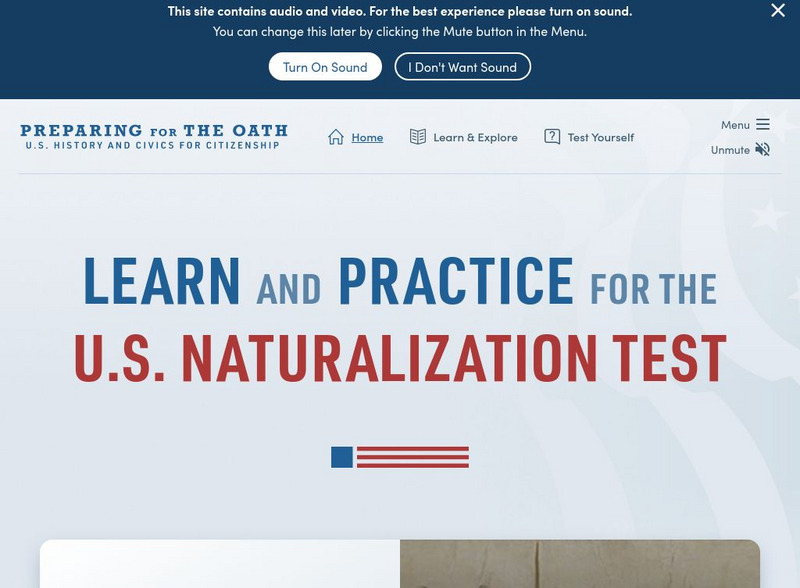
![C3 Teachers: u.s. History Module: Did Founders Want Government to Work? [Pdf] Unit Plan C3 Teachers: u.s. History Module: Did Founders Want Government to Work? [Pdf] Unit Plan](https://static.lp.lexp.cloud/images/attachment_defaults/resource/large/FPO-knovation.png)
